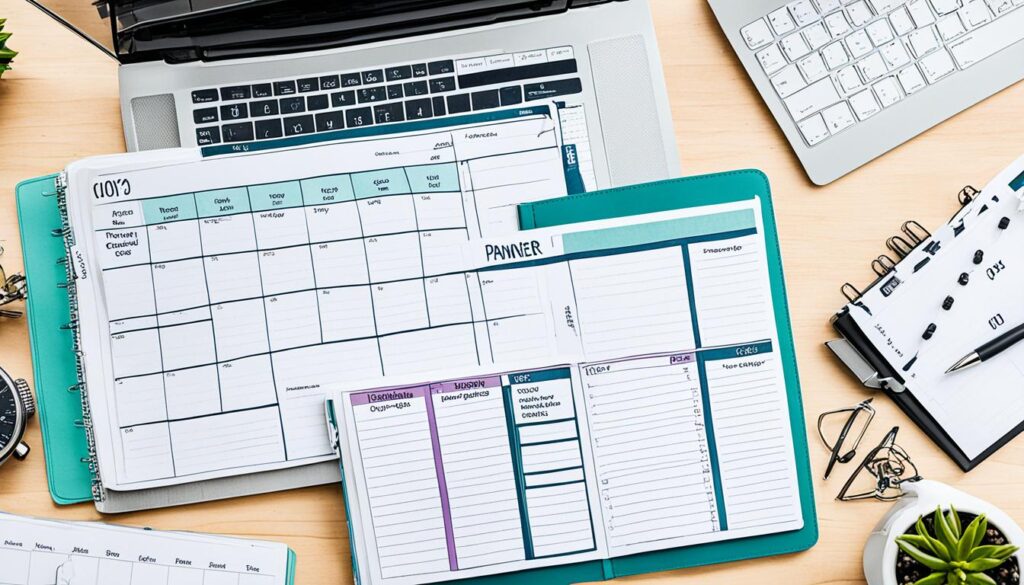Feeling stretched too thin at work? You’re not alone. With the right time management tips, you can regain control of your day, get more done, and still leave room to breathe. This post breaks down simple strategies to help you work smarter, not longer, and boost your productivity without burning out.
Many people believe that working longer hours is the key to getting more done. But what if we told you that it’s not about the quantity of time you spend working, but rather how you manage that time? By implementing essential time management techniques, you can improve productivity, reduce stress, and make the most of every day.
Manage Your Focus, Not Your Time
When it comes to effective time management, it’s important to shift our focus from trying to schedule every minute of our day to managing our attention and energy. Rather than constantly chasing the clock, we can optimize our productivity by prioritizing tasks and minimizing distractions.
One proven technique is to identify the times of day when we are most productive and creative. By understanding our natural rhythms, we can allocate specific blocks of time to tasks that require deep focus. This allows us to leverage our peak performance periods and tackle our most important tasks when we are at our best.
By dedicating uninterrupted time to important tasks, we can maintain focus and stay on track. This means creating an environment that minimizes distractions, whether it’s turning off notifications on our devices or finding a quiet space where we can concentrate. When we designate specific periods for deep work, we train ourselves to be more disciplined and less susceptible to interruptions.
Remember, managing focus is about quality, not quantity. It’s about working smarter, not harder. When we prioritize tasks and invest our energy into what truly matters, we can make the most of our time and increase our productivity.
Benefits of Managing Focus:
- Minimizes distractions and interruptions
- Allows for deep work and concentration
- Improves task prioritization
- Increases productivity and efficiency
By managing our focus rather than obsessively managing our time, we can unlock our full potential and accomplish more in less time. So, let’s prioritize our tasks, minimize distractions, and stay on task to achieve our goals and thrive in today’s fast-paced world.
Debrief the Day for Better Planning
At the end of each day, it’s important to take a few minutes to reflect on how the day went and assess our daily progress. By debriefing the day, we can gain valuable insights into time management, task prioritization, and overall productivity. This self-reflection process allows us to adjust our plans for the future and optimize our time management strategies.
During the debriefing session, we should start by reviewing our to-do list and evaluating whether we accomplished everything we set out to do. This assessment helps us understand our work patterns and identify any challenges or obstacles that may have affected our progress.
“Assessing our daily progress allows us to gain clarity on what we have achieved and how we can improve. It’s an opportunity for self-reflection and growth.”
Once we have assessed our daily progress, it’s time to analyze the patterns and trends in our productivity. Are we more focused and productive at certain times of the day? Are there specific tasks or activities that consistently consume more time than expected? We can leverage our strengths and adjust our schedules by identifying these patterns.
Based on the insights gained from our assessment and analysis, we can now adjust our plans for the upcoming days. Perhaps we need to allocate more time for challenging tasks or delegate certain responsibilities to optimize our efficiency. The goal is to create a well-balanced and achievable plan that aligns with our long-term goals.
The debriefing process is a powerful tool for self-reflection and growth. By regularly assessing our progress and adjusting our plans, we can refine our time management skills and improve our overall productivity.
Debriefing Checklist:
- Review your to-do list and evaluate your accomplishments
- Analyze patterns and trends in your productivity
- Identify strengths and areas for improvement
- Adjust your plans for the upcoming days

| Benefits of Debriefing | Actions |
|---|---|
| Improved task prioritization | Adjusting tasks based on their importance and urgency |
| Optimized time management | Allocating time according to productivity patterns |
| Enhanced self-awareness | Identifying personal strengths and areas for improvement |
| Increased productivity | Streamlining tasks and focusing on high-impact activities |
| Reduced stress | Creating realistic plans and prioritizing self-care |
Prioritize Your Tasks for Maximum Impact
Prioritizing tasks is a crucial aspect of effective time management. When we have a long list of to-dos, it’s easy to get overwhelmed and waste precious time on less important tasks. By prioritizing, we can ensure that our time and energy are focused on tasks that impact our goals and productivity.
So, how do we prioritize our tasks effectively? It starts with identifying the most important and high-impact tasks. These tasks directly contribute to our long-term objectives or have urgent deadlines. By completing these tasks first, we set ourselves up for success and avoid potential procrastination.
One helpful technique for task prioritization is the Eisenhower Matrix. This matrix categorizes tasks based on their urgency and importance, helping us identify what needs to be done immediately and what can be delegated or eliminated.
A visual representation of the Eisenhower Matrix:
| Urgent | Not Urgent |
|---|---|
| Important | Do |
| Not Important | Delegate |
By utilizing this matrix, we can easily distinguish between tasks that demand our immediate attention (urgent and important) and tasks that can be deferred or eliminated (not urgent and not important). This allows us to focus on what truly matters and eliminate unnecessary tasks that eat away at our time and productivity.
It’s important to note that task prioritization is not a one-time exercise. As our priorities and deadlines change, we must continually reassess and adjust our task list. Regularly reviewing and reprioritizing tasks ensures that we stay on track and make the most effective use of our time.
Remember, effective task prioritization is key to optimizing your time management and increasing productivity. By tackling high-impact tasks first and regularly reassessing priorities, you can minimize procrastination and ensure that your valuable time is spent on tasks that truly make a difference.
Use Apps and Tools to Optimize Time Management
In today’s fast-paced world, time management is more important than ever. To help you stay organized, focused, and productive, there is a wide range of apps and tools available. These time management tools can streamline your workflow, track your time, and help you manage your tasks more efficiently.
Calendar Apps for Scheduling and Prioritizing Tasks
One of the most essential time management tools is a calendar app. Calendar apps like Google Calendar, Outlook Calendar, or Apple Calendar allow you to schedule and prioritize your tasks effectively. By adding deadlines, reminders, and time blocks for specific activities, you can ensure that you stay on top of your commitments and make the most of your time.
Task Management Apps for Organizing and Tracking Progress
Task management apps are another valuable resource for optimizing your time management. Tools like Todoist, Trello, or Asana help you create task lists, assign deadlines, track progress, and collaborate with team members. These apps provide a visual overview of your tasks, ensuring that nothing falls through the cracks and helping you prioritize and complete your work efficiently.
Time Tracking Tools to Monitor and Analyze How You Spend Your Time
Ever wondered how much time you spend on different activities throughout the day? Time-tracking tools can provide you with valuable insights. Apps like RescueTime, Toggl, or Harvest allow you to monitor the time you spend on various tasks. By understanding how you allocate your time, you can identify areas where you can make improvements and adjust your schedule accordingly.
| App/Tool | Main Features |
|---|---|
| Google Calendar | Scheduling, reminders, time-blocking |
| Todoist | Task organization, deadline management, collaboration |
| RescueTime | Time tracking, productivity analysis |
| Trello | Task boards, progress tracking, team collaboration |
| Toggl | Time tracking, project tracking, reporting |
Using these apps and tools, you can take control of your time, prioritize your tasks effectively, and make significant progress towards your goals.
Remember, not all tools will work for everyone. It’s essential to experiment and find the ones that best suit your needs and preferences. Whether it’s a calendar app to manage your schedule, a task management app to stay organized, or a time tracking tool to analyze your productivity, incorporating these time management tools into your routine can profoundly impact your efficiency and overall success.
Conclusion
Effective time management is the key to boosting productivity and reducing stress in our daily lives. We can make the most of our time and accomplish more in less time by implementing essential time management tips, such as managing our focus, debriefing our day, prioritizing tasks, and utilizing time management tools.
Time management is not just a one-time practice but a skill that can be continuously honed. By incorporating these strategies into our daily routine, we can work better, faster, and more efficiently. Prioritizing tasks, minimizing distractions, and staying on track allow us to optimize our time and increase productivity.
Remember, effective time management is not about scheduling every minute of our day but about managing our attention and energy. Reflecting on our daily progress, adjusting our plans, and utilizing time management tools can further enhance our productivity. So, let’s make time management a priority to unlock better productivity and success in our personal and professional lives.



